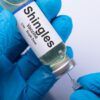Consumers should beware of products claiming that they can prevent the spread of the Zika virus amid growing concerns of the mosquito-borne illness in the states. New York Attorney General Eric Schneiderman said his office has sent out cease and desist letters to 7 companies that claimed their products could prevent or protect against Zika even though the products are known to be ineffective. Health officials say the only remedies effective against mosquitos are ones that contain DEET, picaridin, oil of lemon eucalyptus, a repellent called IR3535, and Para-Menthane-Diol. MedShadow recently published an article detailing what to look for in bug sprays. Posted August 3, 2016. Via New York State Attorney General.
Generic biologic drugs, which are cheaper versions of pricey intravenous drugs typically used for cancer and autoimmune diseases, are as effective as the brand-name versions. That conclusion from researchers at Johns Hopkins University is significant since biologics are derived from living cells, and more difficult to manufacture than traditional drugs. Many pharmaceutical companies have opposed generic biologics since they claim the generic versions aren’t the same as the brand-name versions. So far, no generic biologics are available in the US, though they are available in other countries. Generic biologics are expected to be far cheaper than their brand-name counterparts, which can cost tens of thousands of dollars per year. By next year, biologics are expected to account for 20% of total pharmaceutical sales. Posted August 1, 2016. Via Johns Hopkins University.
The FDA has allowed a corticosteroid spray used to treat seasonal and perennial allergies to become available without a prescription. The move, known as an Rx-to-OTC switch, will bring FLONASE Sensimist (fluticasone furoate) to drugstore shelves early next year. The spray is the same as the prescription version, which goes by Veramyst. Several other nasal steroid sprays have also gone through Rx-to-OTC switches in recent years. These include Nasacort (triamcinolone) and Flonase (fluticasone propionate) in 2014, and Rhinocort (budesonide) last year. Use of inhaled corticosteroids can lead to side effects, the most common being sore mouth, hoarse voice, and infections in the throat and mouth. Posted August 3, 2016. Via GSK Consumer Health.






